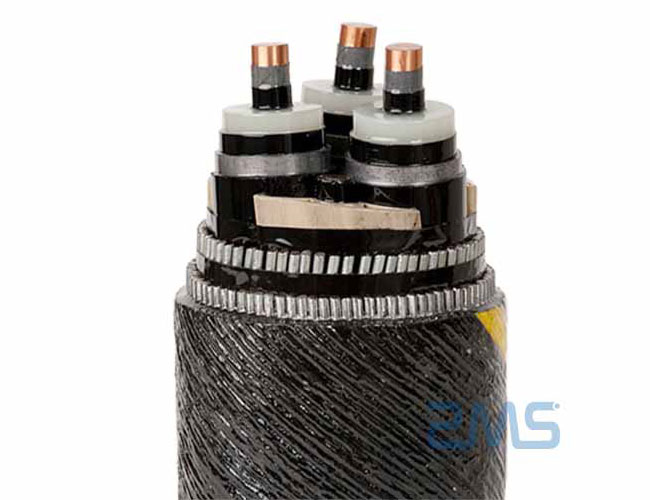Keipolo ʻo e vakauku
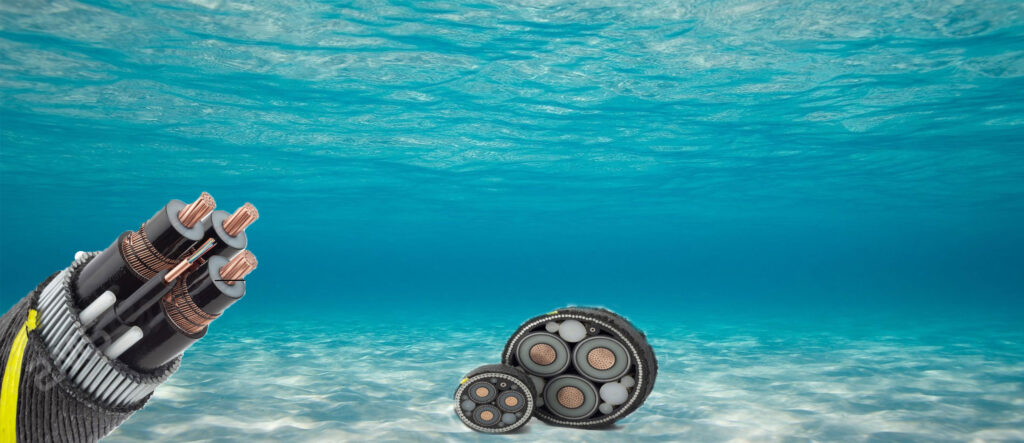
ZMS cable supplier is a very powerful cable supply company.
No matter what kind of cable, you can find here.
We can make cables of various specifications and models and various national standards for you.
Our transportation services and prices will surely satisfy you enough.
Definition of Submarine Cable
Submarine cable is a kind of insulated cable . And it lay on the seabed. Its main function is telecommunications transmission. Besides, people often use the undersea cable. When need to transmit information between the two islands.
The Composition of Submarine Cables
The Manufacturing Process of the Submarine Cable
When making the submarine optical cable in the submarine cable. It is necessary to put the optical fiber in a jelly-like compound. Because, it can protect the optic undersea cable from seawater erosion. Then, put the optical cable into the steel pipe prepared in advance. This is to prevent the optical cable from the strong sea pressure on the seabed.
Uses of Submarine Cables
The submarine communication cable in the submarine cable is mainly used for long-distance communication. Such as, long-distance islands or cross-sea military installations. Submarine cables can shorten the power transmission distance. For example, power transmission between land islands, or harbors, and across rivers. Countries with many islands and rivers often use submarine cables. Although the cost of submarine cables is higher than that of overhead cables. But it is more cost-effective to lay submarine cables in such countries than to build power plants. By the way, ZMS undersea cable is very good. And obviously, ZMS cable company is also very nice.
Classification and Characteristics of Submarine Cables
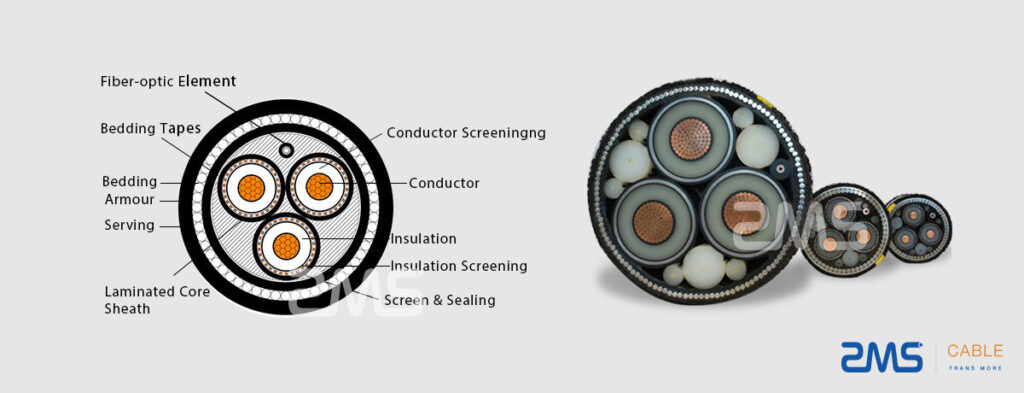
The self-contained oil-filled cable can lay in the sea area with a water depth of 500m. It is little difficulty in laying. The applicable voltage level can reach 750KV.
“Hydraulic” pipe cables have large mechanical limitations. So the laying length can only reach a few kilometers.
Extruded insulated cables generally use XLPE or ethylene propylene rubber as insulation. The use voltage level reaches 200KV and can only be used for alternating current.
Impregnated paper-wrapped cable, laying depth within 500m. AC voltage rating not exceeding 45KV. DC voltage rating not exceeding 400 KV.
Inflatable cable, also known as pressure auxiliary cable. It is a combination of impregnated paper bag and inflatable cable. This type of cable is most suitable for laying long cable nets. However, its operation is complicated and the design is difficult. So its laying depth can only limit to water depths within 300m. If you want to buy undersea cable. Please inquiry us and get a free quotation.
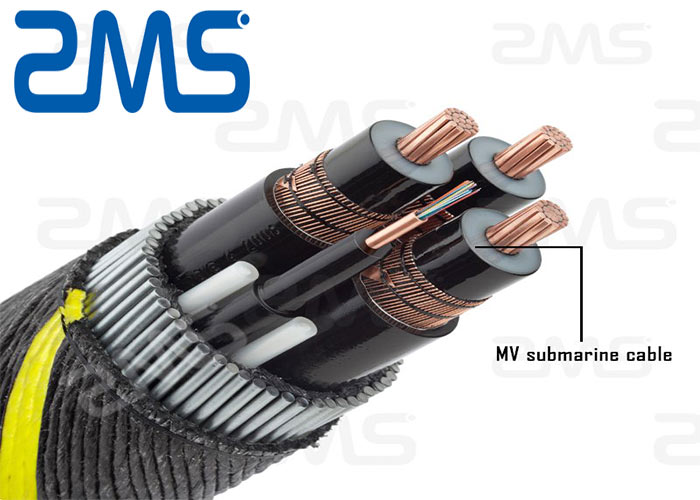
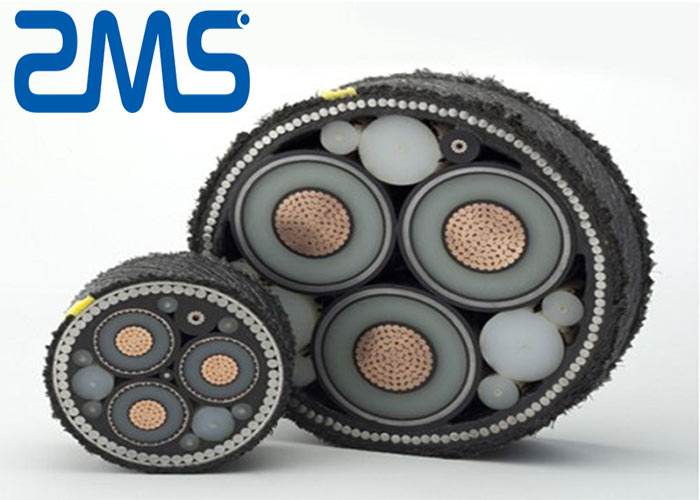
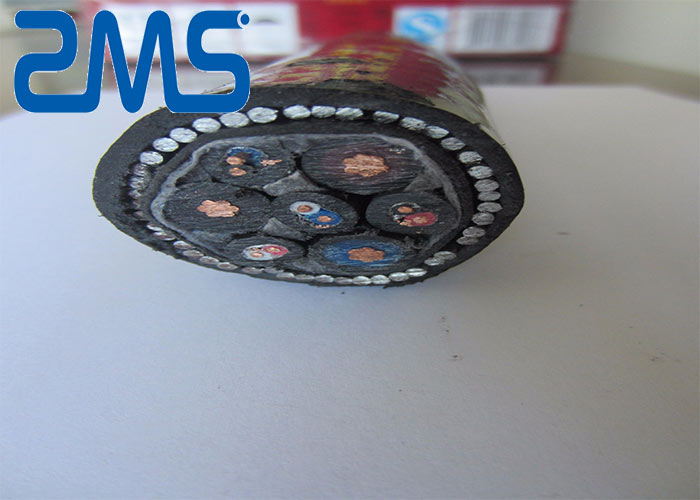
Laying Method of Submarine Cable
There are three stages in the laying of submarine cables. They are survey and cleanup, cable laying and burial protection. When laying cables, attention should pay to the speed of the laying vessel, the angle of entry into the water of the cable, and the laying tension. This is to prevent the cable from being damaged and causing unnecessary losses.
Besides, laying can be divided into shallow coastal laying and deep sea laying according to the depth of the sea.
Various Indicators to be Inspected Before Laying the Submarine Cable
Electrical performance indicators. Such as, conductor DC and AC resistance, insulation resistance. Dielectric loss rate, maximum current carrying capacity. Induced current and voltage of the metal sheath, capacitance and inductance of the submarine cable.
Mechanical and physical performance indicators. For example, whether the mechanical strength of the cable meets the standard. The tensile strength and elongation of the conductor. And the mechanical and physical properties of the insulating material.
Broad Application Scenarios of Submarine Cables
First of all, in many island countries and coastal cities. Submarine cables are the main means of communication between islands and cities
Secondly, offshore oil platforms,
Thirdly, the application of underwater cables in river basins. The transformation of rivers and the construction of reservoirs have resulted in an increasing demand for underwater cables.
Fourth, submarine cables for offshore wind power generation or power transmission. Offshore wind power generation systems are an important project in the development of international new energy. And the future market is broad.
ZMS produces the power cables. And sell them all over the world. Many countries are very satisfied with our products and services.
We provide a complete range of cables. And the equipment for producing cables is also the most advanced. If you want to know more, please click ask.

